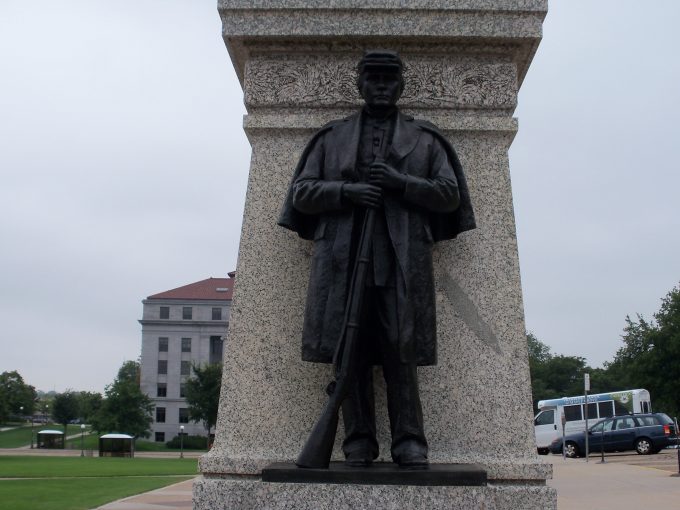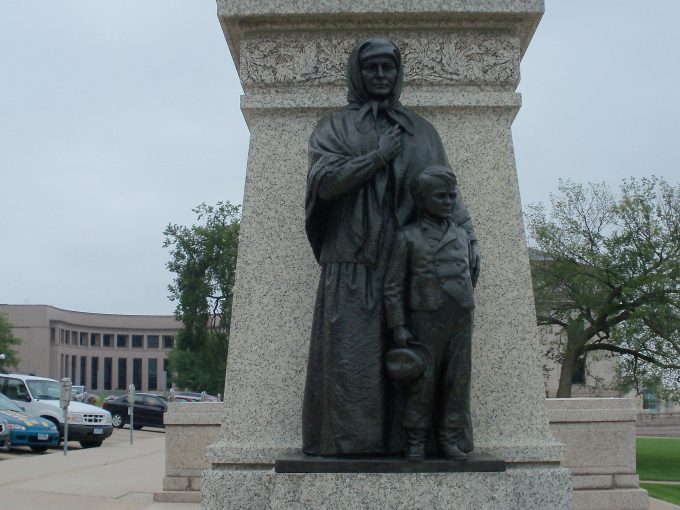
For our gospel did not come to you in word only, but also in power, and in the Holy Spirit and in much assurance, as you know what kind of men we were among you for your sake. 1 Thessalonians 1:5
The words “our gospel” don’t indicate that it is a gospel formulated by Paul, Silvanus, and Timothy, but that it is the true gospel which was first preached by them to those at Thessalonica. This occurrence is noted in Acts 17:1-3 –
Now when they had passed through Amphipolis and Apollonia, they came to Thessalonica, where there was a synagogue of the Jews. 2 Then Paul, as his custom was, went in to them, and for three Sabbaths reasoned with them from the Scriptures, 3 explaining and demonstrating that the Christ had to suffer and rise again from the dead, and saying, “This Jesus whom I preach to you is the Christ.”
It is this gospel of Jesus which “did not come to you in word only.” These men came to Thessalonica with the intent of sharing the message of Jesus Christ, and they did it with words. This is the way in which the gospel is transmitted. It is a message which must be conveyed in order for others to understand. In the case of Thessalonica though, it came with more than just words, “but also in power.” The word is dunamis, a Greek word which, in this sense, gives the idea of efficacy. It had the ability to perform what was presented by converting the minds and souls of those who heard it.
There is no reason to assume that “power” here indicates physical manifestations of conversion. As seen from the citation above, they “reasoned with them from the Scriptures.” The power to convert was found in the word, “and in the Holy Spirit.” The Spirit is the Source of the word, and He is the one who makes the word understandable to those who hear it, converting them and sealing them when the word is believed. This conversion is a demonstration of the Spirit. When a person sees the complete change in another, they realize that it was more than just a personal choice, but a truly miraculous event. The sex-addict, the drunkard, the morally perverse… these people become a witness to the power of the Holy Spirit when they have a complete break from the path they were on because of hearing and receiving the gospel message.
Paul then says that the gospel also came “in much assurance.” When the message was heard, there was no doubt. The changes were sufficient to provide complete assurance that the power of God is truly found in the gospel message. It is a mystery which, when revealed in the longing human soul, has the ability to fully convert and completely convince. This message was presented by these men, not as a con-game or a scam, but – as Paul says – “as you know what kind of men we were among you for your sake.”
Their lives and actions substantiated that what they spoke was true. They didn’t just preach the gospel, they also lived it out. They were interested in saving souls for Christ, not getting rich off of Him. They were industrious, dedicated, and sincere. The very fact that Paul continued his outreach to them after he had gone (meaning in letter), shows that his concern for them was true. His letters to them, and to all of the churches, show that he desired that they would remember the gospel, be firm in their convictions, and grow in the knowledge of the Lord Jesus Christ. Such actions as these proved that he, and those with him, were not deceivers. Instead, they were sincere messengers of the most marvelous news of all.
Life application: What a shame people look for the sensational side of religion. Whether it is a crazy analysis of a passage (such as looking for aliens or UFOs in certain verses), or whether it is to fawn over someone who claims to have powers to heal or speak in garbled tongues that only he understands, it is not a sound way of approaching one’s theology. Rather, God’s demonstration of power is grounded in reality, and it is evidenced in converted lives which are holy, sound, reasonable, and dedicated to Jesus Christ. Let us live out our Christian walk in such a manner so that we too will be responsible bearers of this marvelous message.
Lord God, help us to depart from sensational theology which does nothing to convert the soul. Instead, help us to be properly grounded in Your word which is, all by itself, a demonstration of Your power. It is fully sufficient to convert the most vile sinner into a saint. Help us to act reasonably and in accord with this word; so that others may see our actions and be willing to taste Your word, see that it tells of You, and find that You are indeed good! To Your glory we pray, Amen.



